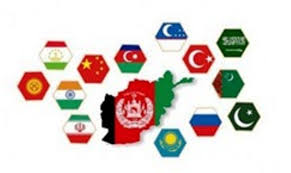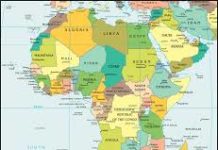Web Desk
A tripartite meeting of the foreign ministers of Pakistan, Turkey and Azerbaijan will take place in Baku on November 30 on the sidelines of the Heart of Asia Meeting to discuss the peace process in Afghanistan.
Azerbaijani Foreign Minister Elmar Mammadyarov announced the meeting at a joint press conference with his Russian counterpart Sergey Lavrov in Baku on Monday.
Mammadyarov added that the tripartite meeting will be held before the 7th Ministerial Conference of the “Heart of Asia” – Istanbul Process (HoA IP) which is due to take place in Baku from November 30 to December 1.
Before Azerbijan, the s previous co-chairs were Turkey (2011), Kazakhstan (2013), China (2014), Pakistan (2015), and India (2016). Afghanistan which is the permanent Chair of the Heart of Asia-Istanbul Process hosted the Process’s second ministerial conference in 2012.
Since its inception in 2011, the Heart of Asia-Istanbul Process has been a regional venue for high level political consultation among countries from the three geographically interconnected regions of the Caspian and Central Asia, the Middle East, and South Asia all connected through Afghanistan – the Heart of Asia. The process brings together 14 countries as participant states to work for regional cooperation in some of the least integrated regions of the world. Seventeen countries from outside the region and twelve regional and international organizations are supporting the agenda of Heart of Asia-Istanbul Process.
The very idea of Heart of Asia-Istanbul Process is to promote regional cooperation among countries in the region with a focus on stabilizing Afghanistan, a country that can support intra-regional trade and economic connectivity to benefit regional economic development and prosperity. Though its initial focus has been Afghanistan, over the last six years the Heart of Asia-Istanbul Process has been working as a regional platform where key security, political and economic connectivity issues concerning the wider regional space are discussed with an intention to build regional consensus over key political and security issues that hinder practical cooperation.
Azerbaijan is a participating state in the Heart of Asia-Istanbul process, and along with Turkmenistan leads the Regional Infrastructure Confidence Building Measure (CBM) of the Process. The six Confidence Building Measures of the process function as clusters of activities that include identifying and prioritizing set of activities or problems that the Heart of Asia-Istanbul Process needs to address in order to enhance cooperation and remove existing barriers. The CBMs, besides promoting practical cooperation, function as mechanisms to synergize the Heart of Asia-Istanbul Process with activities and programs that are being undertaken by various other regional projects. In some areas such as infrastructure, the Heart of Asia-Istanbul Process activities include activities that support projects and programs that are not initiated under the Process, but are critical regional projects.
As a leading country for Regional Infrastructure CBM of the Heart of Asia, Azerbaijan is also a party to the penta-lateral trade and transport corridor agreement called the Lapis Lazuli. Lapis Lazuli is an Afghan initiative that intends to link Afghanistan to Europe via Black Sea and the Mediterranean ports. The draft agreement of Lapis Lazuli was signed by officials of Afghanistan, Azerbaijan, Georgia, Turkey and Turkmenistan on 17th of November 2016 in Baku. When completed, the initiative will link the economy of the Caspian region and Europe to South Asia through Afghanistan.
Despite many security concerns over the last two years, there has been important progress in the area of regional energy and infrastructural linkage between the Caspian-Central Asia, Afghanistan and South Asia. Major projects include the signing of Central Asia-South Asia electricity transmission line (CASA-1000) in May 2016, and Turkmenistan, Afghanistan, Pakistan and India (TAPI) gas pipeline project which was launched in December 2015. Afghanistan-Turkmenistan railway project which was completed in November 2016, will connect the Caspian to Afghanistan and China, and eventually to South Asia. This is part of the Lapis Lazuli Route that can unlock the enormous trade and economic connectivity potential around the Caspian region and beyond.
Considering the wide regional representation, the Heart of Asia-Istanbul Process can be instrumental in mobilizing political support for realization of the regional economic cooperation in the wider Caspian region and beyond. Azerbaijan’s co-chairing of the Heart of Asia-Istanbul Process in 2017 provides an opportunity for the country to play a leading role in enhancing regional cooperation in the area of regional economic and trade connectivity, which is a prime interest of all countries in the region.













